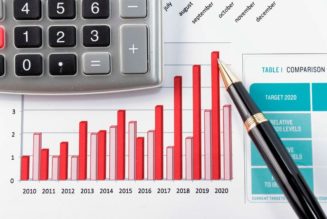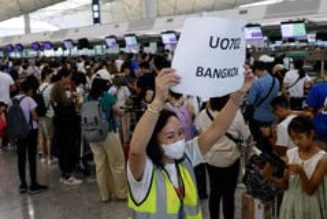Columnists
Don’t starve private sector of credit
Friday July 14 2023
Why would a company invest money in the real economy when it can make more cash from lending to the government? FILE PHOTO | POOL
Why would a company invest money in the real economy when it can make more cash from lending that money to the government?
I am referring to the results of the latest bond auction where the weighted average of bids accepted rose to an unprecedented level of 16.8 percent. Mark you, lending to the government is risk-free.
Why would a commercial bank lend money to a manufacturer or even a shopkeeper who wants to expand his business when it can sit back and without breaking a sweat shovel it into government bonds at such high margins?
Interest rates on government paper have gone haywire. The crowding-out effect we read about in economics is not just about some arcane economics textbook theory. The collapse of borrowing and investment is happening right in front of our noses.
When interest rates rise in such an unpredictable manner as is happening, the private sector stops investment. Companies shed jobs.
They don’t invest in plants and machinery. They don’t recruit. There will be no growth in the economy.
Tax revenues crash causing the government’s appetite for borrowing to soar and necessitating further borrowing at higher interest rates. We are standing on a domestic debt treadmill.
My dealer friends who monitor deal flows first-hand say some investors were bidding as high as 20 percent during last weekend’s bond auction.
Clearly, the fundamentals are dire. The exchange rate is on a free-fall, with the shilling weakening against the dollar by the day; now trading against the greenback at about 140 per dollar.
Inflation is refusing to budge. The central bank rate is at a high of 10.5 following the recent review.
The interbank — the interest rate at which banks lend money to one another and hence pump liquidity into the economy — has also followed this upward trajectory.
If you asked me to name the most pressing macroeconomic challenge we are likely to face in the short- term in view of the current circumstances, it is the non-availability of credit to the private sector, and consequently the collapse of borrowing and investment.
The circumstances have left our economic policymakers blundering all the time. In the name of stabilising the exchange rate, the government touted how it had come up with an arrangement whereby we would no longer buy oil on spot markets in the Gulf and would instead be getting our oil imports on credit and at intervals of six months.
The justification for this change was that the new system would ease pressure on the demand for dollars and cause the exchange to stabilise.
Months later, the government has been forced to face the reality that it merely kicked the can down the road when it deferred dollar payments for the oil.
Word has filtered that a government team had to be hurriedly dispatched to Saudi Arabia— cap in hand—to seek renegotiation of the terms with the rich Arabs.
High prices
Then there was the time when the government rolled out a massive duty-free import programme for a range of food items ostensibly to force prices of locally produced items down.
The Kenya National Trading Corporation (KNTC) was given enhanced powers to play an expanded role in price stabilisation.
As it has turned out, the impact of the much-vaunted duty-free imports programme on the price level has been negligible, to say the least.
Public complaints about high consumer prices on maize flour, sugar and cooking oil have become even louder.
The writer is a former managing editor of The EastAfrican.









